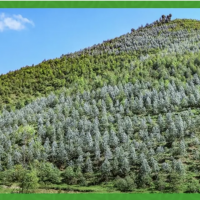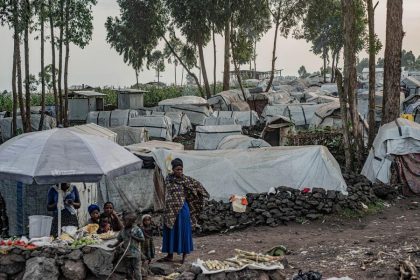If you think rural to urban migration only applies to human beings think again. In Botswana it now applies to elephants as well.
Previously known to roam in rural areas, Botswana’s ever-increasing elephants are now ‘spilling’ from the iconic Chobe National Park into the nearby Town of Kasane where they are unwelcome immigrants.
With a total of about 130 000 elephants; Chobe National Park has the biggest elephant population compared to other national parks in Africa and in the world.
Previously known to only happen in rural areas, human elephant conflict around the iconic Chobe National is now increasingly felt in Kasane Town where a herd of elephants fatally attacked a 54-year old local resident, Mr Merafhe Cappie Shamukuni on 3 May 2019.
Mr Merafhe’s death has put a spotlight on the severe and increasing human wildlife conflict that communities settled next to national parks of southern African experience daily. The herd of elephants killed Mr Shamukuni just about 700 metres from his home in Kasane, last week. He was coming from a local Township called Plateau where he had spent an evening with friends.
Then while going back home around 10pm he came across a herd of elephants. His vision was not good and also elephants are dark in colour and this made it even more difficult for him to realize that he was among them. Therefore, when he later noticed that he was among elephants he tried to run, but it was too late. The elephants attacked and killed him instantly.
As elephant populations in southern African countries continue to increase so is human and wildlife conflict, limiting freedom of movement, opportunities for agricultural production, and causing social and economic crises through deaths of loved ones, including breadwinners. Elephants are also destroying people’s properties.
In neighbouring Zimbabwe’s Hwange National Park that is also facing an elephant over-population problem, Mr Biggie Shoko recently survived an elephant attack and tells a harrowing story in which an elephant almost trampled him to death, early in the morning while going to work.
“I am believe it is God who saved me from being killed by that elephant,” said Mr Shoko. “I thought I was going to die as the elephant kept on trampling on my leg and I started screaming saying hey you elephant please leave me alone. The elephant miraculously left me but I can longer perform difficult tasks and provide for my family like I used to do before the elephant attack.”
Back in Kasane Town of Botswana, Mr Charles Shamukuni the father of the fatal elephant attack victim said that they never used to have elephants attacking people in Kasane Town.
“The fact that we are now being attacked and killed by elephants in Town suggests that there should be an elephant overpopulation problem in the nearby Chobe National Park,” said Mr Shamukani. “I used to like elephants before they killed my son but I now hate them. They did a cruel thing to me and I hope we could be compensated when our loved ones and breadwinners are killed by elephants.”
He said that his late son Mr Merafhe Cappie Shamukuni used to talk about how elephants were restricting people’s freedom of movement in Kasane, before he died.
“I feel very painful about the loss of my son,” said Mr Shamukuni. “My son was not sick, he was fresh as anything. Now when the you just hear that you son has died instantly it is painful.”
Mr Shamukuni said that the Kasane police came to his house and broke the “saddest” news that elephants killed his son.
A Kasane councilor, Boitumelo Kanye confirmed that Kasane residents are increasingly getting killed by elephants.
“Human elephant attacks never used to happen before in Kasane but for the first time since Kasane town was built about three people have so far been killed by elephants,” said Clr Kanye. “We are worried and unhappy.”
The Chobe National Park is part of the Kavango-Zambezi (KAZA) Transfrontier Conservation Area (TFCA) in which the governments of Angola, Botswana, Namibia, Zambia and Zimbabwe are jointly managing 250 000 elephants (biggest elephant population on planet earth) in their neighbouring national parks. The KAZA TFCA is larger than Germany and Austria combined and nearly twice as large as the United Kingdom. It lies in the beautiful Kavango and Zambezi River basins where Angola, Botswana, Namibia, Zambia and Zimbabwe converge.
Mindful of the increasing human elephant conflict these southern African countries then held the Kasane Elephant Summit in Kasane, Botswana, under the theme towards a common vision for the management of our elephants. The common vision includes the need to address the escalating human elephant conflict.
Meanwhile, the Kasane Elephant Summit has agreed that there is need to provide public awareness and education on techniques to ensure public safety and reduce human elephant conflict.
Among other things the Kasane Elephant Management Summit agreed to develop or review legislation to ensure that revenue generated by tourism benefits those most impacted by human wildlife conflict.
The loss of a loved to an elephant attack can cause little-known social problems.
For Mr Shamukuni, the loss of his son who was affectionately known as Cappie has meant that no one will be able to take care of him because he is wheel-chair-bound and needs assistance to go to the toilet, including bathing and dressing himself.
A teacher who turned journalist and now retired, Mr Shamukuni was surrounded by mourners at the time of interview, including his two sons who work in Botswana’s capital city, Gaborone. Sadly, he will soon be left alone when they go back to work.
“I know that the reason why elephants continue to uncontrollably over-populate Chobe National Park is because over the past five years we have not been able to thin out their population size following the ban on hunting in Botswana,” said Mr Shamukuni. “If I have to meet these westerners having power also, I would talk to them to stop interfering with the hunting programmes of Botswana because we use to hunt elephants and when elephants saw you they would run away. Today, when the elephants see you they don’t run away, they come to you.”
By Emmanuel Koro
About the Writer: Emmanuel Koro is Johannesburg-based international award-winning environmental journalist who has written extensively on environment and development issues in Africa.
The Express News










